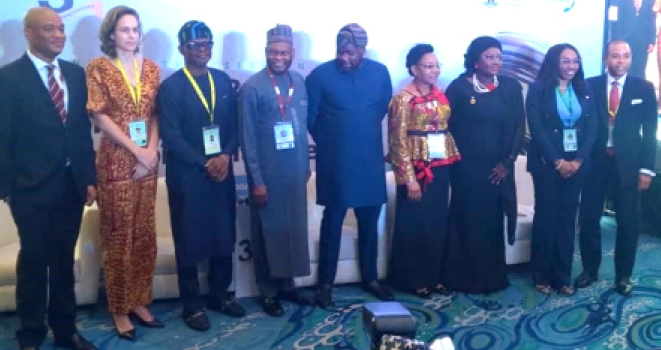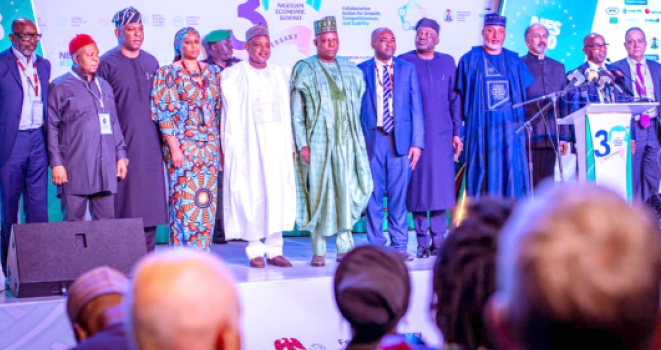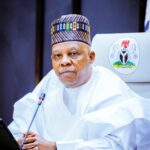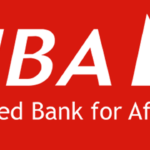As the Nigerian Economic Summit Group celebrates 30 years, the President of Nigeria, Bola Ahmed Tinubu reaffirmed the government’s commitment to restoring economic balance through bold reforms.
The summit holding in Abuja witnessed the presence of top government officials, industry leaders, and international stakeholders with the theme ‘Collaborative Action for Growth, Competitiveness, and Stability’.
Representing the president at the summit, Vice President Kashim Shettima, noted that COVID-19 pandemic, volatility in oil prices, and internal security concerns, have exposed Nigeria’s over-reliance on oil hence the need for economic diversification. He also emphasized investment in infrastructure, single-digit loans for manufacturers, and programs to support small and medium-sized enterprises (SMEs), ensuring a more inclusive economy.
The Vice President called for public-private collaboration, stressing that no single sector can resolve Nigeria’s challenges alone. He expressed optimism about the nation’s future, noting Nigeria’s young, talented population as key to its success as he declared the summit open.
NOA seeks media support to promote essential family practice campaign
Chairman, board of directors Nigerian Economic Summit Group (NESG), Mr. Niyi Yusuf, in his address called for decisive reforms to address Nigeria’s economic vulnerabilities highlighting persistent challenges such as high inflation, income inequality, and multidimensional poverty, Yusuf urged collaboration between government, the private sector, and civil society to promote inclusive growth as well.

He acknowledged the progress made since the 2016 recession, citing improvements in GDP growth and foreign investment. However, Yusuf stressed that structural issues, such as security concerns, inadequate infrastructure, and institutional weaknesses, continue to stifle Nigeria’s economic potential.
“Since our recovery from the 2016 economic recession, the Nigerian economy has shown resilience but remains fragile. In 2023, real GDP growth slowed to 2.74%, down from the 3.1% that was reported in 2022” he said.
Yusuf emphasized the need for fiscal reforms, including the reduction of governance costs, privatization of underperforming national assets, and aligning policies with productivity goals.
Similarly, the minister of budget and economic planning, Atiku Bagudu, reiterated the critical role of collaboration in sustaining economic growth commending the progress made through bold economic reforms and partnerships between the government and private sector.
The minister acknowledged the challenges of high inflation and economic instability but pointed out positive outcomes like the rise in GDP growth to 3.19% in the second quarter of 2024 and improved external reserves.
Regulatory Reforms Crucial to Growth, Competitiveness
In an interactive session hosted by the Ernest Shonekan Centre for Legislative Reforms and Economic Development during the summit, experts and stakeholders discuss on “Regulatory Reforms for Economic Growth and Competitiveness,” stressing the importance of effective regulation in creating a business environment that promotes innovation, investment, and productivity.
The session gathered regulators, entrepreneurs, and industry experts to dissect the hurdles faced by businesses, especially Micro, Small, and Medium-sized Enterprises (MSMEs).
In his address during the session, the chairman of the board of directors of the Centre, Kyari Bukar, emphasized the role of regulation as “one of the most powerful tools that governments use to shape economic outcomes.” He added that while significant strides have been made through initiatives such as the Business Facilitation Act (BFA) 2022 and the Companies and Allied Matters Act (CAMA) 2020, businesses still grapple with a regulatory landscape that is often complex and stifling
The Panelists, spoke on operational challenges faced by MSMEs, particularly the bureaucratic red tape and lack of engagement between regulators and the private sector, noting that regulators often prioritize revenue collection, particularly from micro and nano entrepreneurs, over creating a conducive environment for growth.
The panelists noted the bottleneck in registration, tax compliance, and access to finance creates an environment that is not conducive for businesses to expand.

 Join Daily Trust WhatsApp Community For Quick Access To News and Happenings Around You.
Join Daily Trust WhatsApp Community For Quick Access To News and Happenings Around You.


